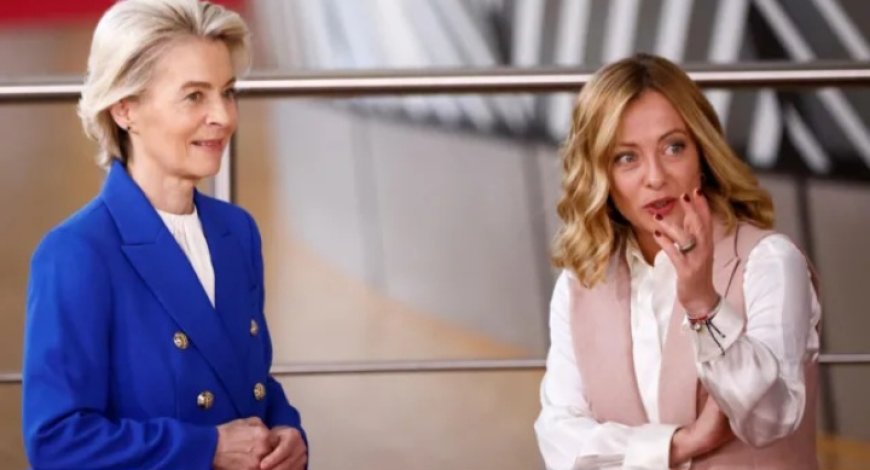Migrant deportations to increase, says EU chief

EU Commission President Ursula von der Leyen has said the bloc could "draw lessons" from the contested Italian policy of processing migrants offshore in Albania ahead of an EU summit focusing on migration.
She made the remarks in a letter to member states ahead of the meeting in Brussels on Thursday and Friday, where she said the European Commission would present a new proposal for legislation to increase deportations of migrants.
Von der Leyen - who is just starting a second five-year term as European Commission chief - appears to be responding to pressure on migration from across Europe.
In her letter to member states, she said the return rate of irregular migrants from EU countries is currently only about 20% - meaning the vast majority of people who are ordered to leave an EU member state do not.
Many simply stay put or move to another country within the bloc, she said.
Member states should all recognise the decisions taken by other EU countries to ensure that "migrants who have a return decision against them in one country cannot exploit cracks in the system to avoid return elsewhere", Von der Leyen wrote.
Her comments come as Italy kicks off its long-awaited scheme, under which some of the migrants rescued in the Mediterranean will be sent to Albania for processing.
Earlier this week, 16 men of Bangladeshi and Egyptian origin were moved from the migrant hotspot of Lampedusa, off the coast of Sicily, to one of two purpose-built centres on the Albanian coast where their asylum claims will be examined.
The centres, which cost about €650m (£547m), were due to open last spring but were plagued by long delays, have been paid for by the Italian government and will be operated under Italian law.
They will house migrants while Italy examines their asylum requests. Pregnant women, children and vulnerable people will be excluded from the plan.
Political opponents of right-wing Italian Prime Minister Giorgia Meloni as well as several NGOs have criticised Italy's deal with Albania.
Riccardo Magi, an MP with the left-wing +Europa party, said the Albania scheme was "cruel, useless and expensive", while NGO Doctors Without Borders said it was "likely to result in further harm and violation of human rights".
However, addressing MPs on Tuesday, Meloni argued that the plan was "a new, courageous, unprecedented path" which "perfectly reflected the European spirit".
The implementation and the results of the Albania agreement will be watched closely by many EU member states, several of whom have attempted to respond to a surge in support for far-right parties by hardening their rhetoric and their approach to migration.
In the last few weeks alone, Germany reintroduced land border checks, the French government said it would look into tightening immigration legislation and Poland announced a plan to temporarily suspend the right to asylum for people crossing the border.
Polish PM Donald Tusk said the controversial move was meant to stop Belarus from "destabilising" Poland by allowing large numbers of migrants into the country.
In France and Germany, it was grisly murders which prompted calls for tougher action on immigration. A Syrian failed asylum seeker stabbed three people to death in Solingen, while a young student was murdered by a Moroccan national near Paris. In both cases, the killings were carried out by men who had been given expulsion orders that had not been enforced.
Last month, 15 member states signed a proposal by Austria and the Netherlands to improve the "efficiency" of the deportations system.
Source: BBC























































